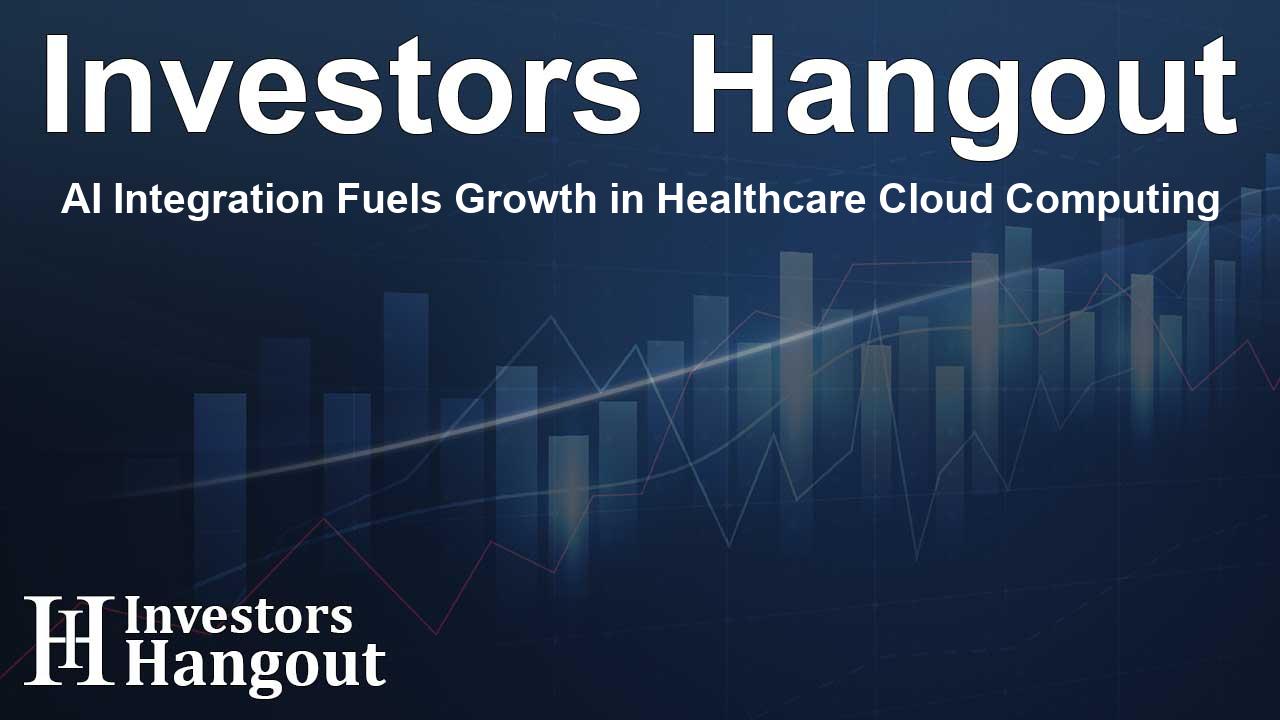AI Integration Fuels Growth in Healthcare Cloud Computing

Exploring the Healthcare Cloud Computing Market Growth
The healthcare cloud computing market is on the brink of an exciting evolution, projected to witness a substantial increase of USD 98.6 billion from 2024 to 2028. The driving force behind this growth is the integration of innovative services powered by artificial intelligence (AI), which is rapidly reshaping the healthcare landscape. As healthcare providers continue to adopt cloud solutions, they are not only enhancing operational efficiencies but also improving patient care through advanced technology.
Significant Market Drivers
Transformative Trends in Healthcare
Key elements such as Electronic Health Records (EHR), Telehealth, the Internet of Things (IoT), and Big Data Analytics are accelerating growth in the healthcare cloud computing sector. EHRs provide real-time access to patient information, which is crucial for timely medical decisions. Meanwhile, Telehealth enables remote consultations that are essential for increasing patient engagement. Additionally, IoT devices are instrumental in monitoring patient health conditions from a distance, ensuring continuous care.
Big Data's Impact
Big Data Analytics is becoming an essential tool in diagnosing chronic illnesses, including cancer, cardiovascular diseases, and diabetes. By leveraging vast datasets, healthcare professionals can develop personalized treatment plans, improving patient outcomes significantly. Furthermore, the transition to cloud-based systems facilitates scalability, data storage, and cost-efficiency, making these services appealing to healthcare payers like Medicaid and Medicare.
Challenges Facing the Market
Addressing Workforce Shortages
Despite promising growth, the healthcare cloud computing sector faces challenges, particularly the shortage of skilled cloud professionals. As organizations strive to implement cloud solutions swiftly, finding and retaining qualified IT experts has become a significant hurdle. This skill gap is displayed in surveys revealing that around 45.6% of respondents view workforce limitations as a barrier to ongoing cloud integration.
Data Security and Regulatory Compliance
The move toward digital solutions brings concerns regarding data security and privacy. Healthcare organizations must navigate a landscape of data interoperability and compliance with regulations. Solutions involving blockchain technology are emerging to address these issues by allowing secure data sharing, enhancing patient trust, and ensuring data integrity.
The Role of Edge Computing in Healthcare
Optimization Through Local Processing
Edge computing represents a significant leap in healthcare technology. By processing data closer to its source, this method eliminates latency, enabling immediate analysis and response—crucial in healthcare scenarios where every second counts. This technology becomes particularly valuable when integrated with IoT devices used for health monitoring, thus improving patient care outcomes.
Market Segmentation Overview
The healthcare cloud computing market can be classified by product, component, and geography. The product types include Software-as-a-Service (SaaS), Infrastructure-as-a-Service (IaaS), and Platform-as-a-Service (PaaS), each catering to different needs within the healthcare industry. The segmentation by component differentiates between hardware and services, while geographical segmentation encompasses North America, Europe, the Asia-Pacific, South America, and the Middle East and Africa.
SaaS Solutions Driving Adoption
SaaS offerings are becoming increasingly popular in healthcare settings as they provide an economical alternative to traditional software installations. With benefits such as lower upfront costs, easy maintenance, and scalability, healthcare providers are turning to vendors offering cloud services tailored to their specific needs. Companies, including those creating platforms for patient management or telemedicine, are rapidly expanding their offerings to meet this demand.
Conclusion: The Future of Healthcare Cloud Computing
As we look toward the future, the healthcare cloud computing market appears poised for robust growth, spurred by advancements in AI and continued technological adoption. Providers must focus on overcoming existing challenges such as workforce shortages and data security issues to fully realize the opportunities presented by cloud solutions. With strategic investments and innovations, stakeholders in the healthcare system can enhance the quality of care while ensuring cost efficiency, ultimately transforming patient experiences.
Frequently Asked Questions
What factors contribute to the growth of the healthcare cloud computing market?
The growth is primarily driven by the integration of AI technologies, increasing reliance on telehealth, and the adoption of IoT solutions for patient monitoring.
How does edge computing benefit the healthcare industry?
Edge computing enhances data processing speed, allowing for real-time analysis and improved patient care through quicker access to essential health data.
What are the major challenges in adopting cloud computing in healthcare?
Significant challenges include a shortage of skilled IT professionals and concerns regarding data security and regulatory compliance in cloud environments.
What role does Big Data play in healthcare?
Big Data helps in analyzing patient information for chronic disease management, treatment personalization, and operational efficiencies within healthcare systems.
Why are SaaS solutions becoming popular among healthcare providers?
SaaS solutions offer cost benefits, ease of deployment, and ongoing support, making them an attractive choice for healthcare organizations transitioning to cloud computing.
About The Author
Contact Riley Hayes privately here. Or send an email with ATTN: Riley Hayes as the subject to contact@investorshangout.com.
About Investors Hangout
Investors Hangout is a leading online stock forum for financial discussion and learning, offering a wide range of free tools and resources. It draws in traders of all levels, who exchange market knowledge, investigate trading tactics, and keep an eye on industry developments in real time. Featuring financial articles, stock message boards, quotes, charts, company profiles, and live news updates. Through cooperative learning and a wealth of informational resources, it helps users from novices creating their first portfolios to experts honing their techniques. Join Investors Hangout today: https://investorshangout.com/
The content of this article is based on factual, publicly available information and does not represent legal, financial, or investment advice. Investors Hangout does not offer financial advice, and the author is not a licensed financial advisor. Consult a qualified advisor before making any financial or investment decisions based on this article. This article should not be considered advice to purchase, sell, or hold any securities or other investments. If any of the material provided here is inaccurate, please contact us for corrections.
